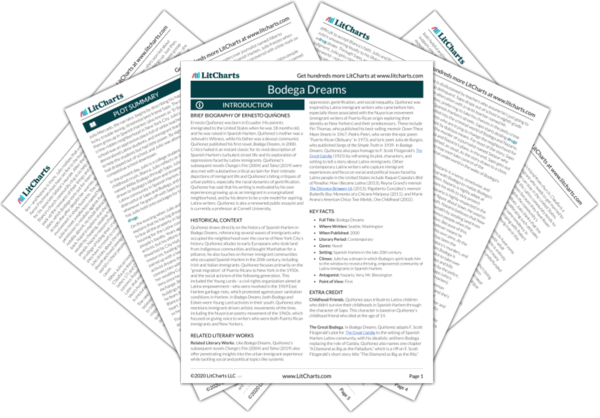Previous
Book 2, Round 7
|
Previous
Book 2, Round 7
|
Bodega Dreams: Book 2, Round 8 Summary & Analysis |
Next
Book 2, Round 9
|


Upgrade to unlock the analysis and theme tracking for all of Bodega DreamsBodega Dreams!
Get LitCharts A+